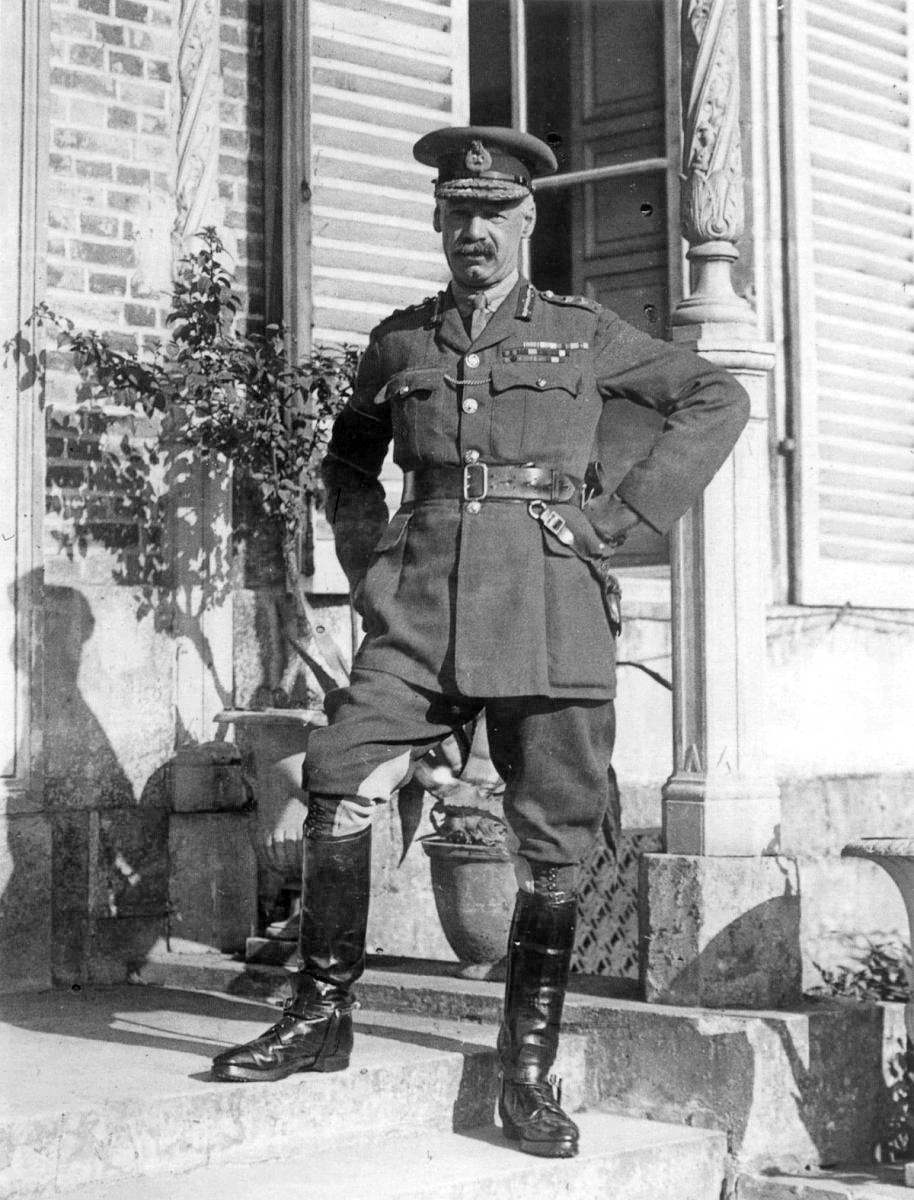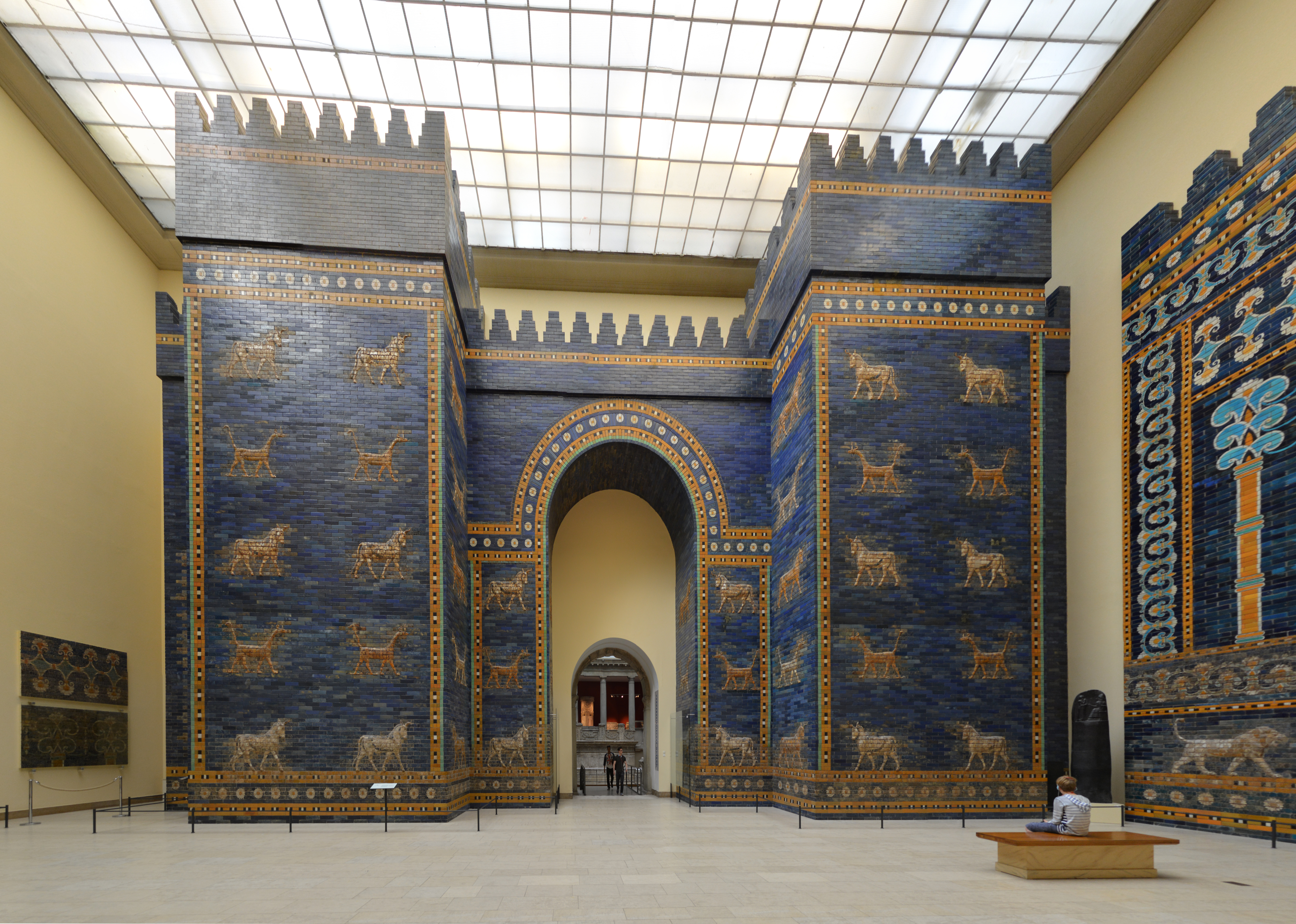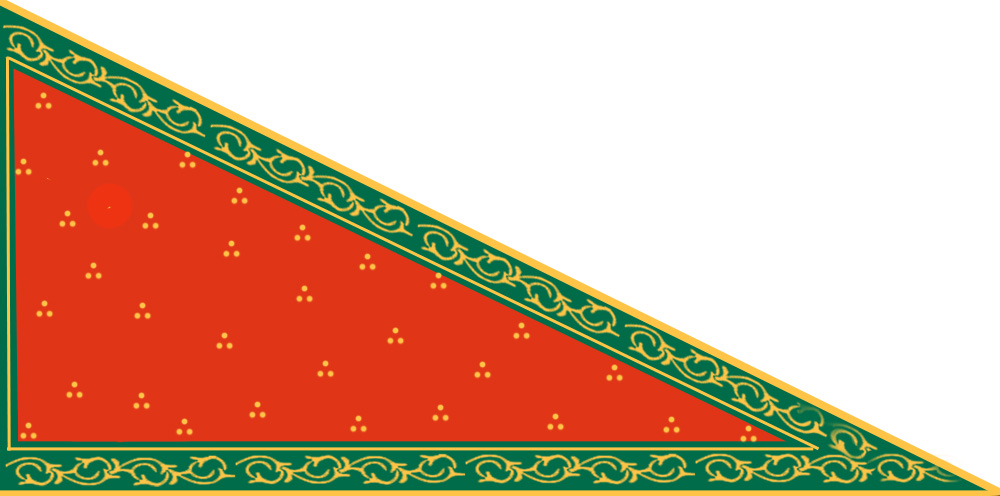|
Henry Creswicke Rawlinson
Sir Henry Creswicke Rawlinson, 1st Baronet, KLS (5 April 1810 – 5 March 1895) was a British East India Company army officer, politician and Orientalist, sometimes described as the Father of Assyriology. His son, also Henry, was to become a senior commander in the British Army during World War I. Early life and army service Rawlinson was born on 5 April 1810, at the place now known as Chadlington, Oxfordshire, England. He was the second son of Abram Tyack Rawlinson, and elder brother of the historian George Rawlinson. In 1827, having become proficient in the Persian language, he was sent to Persia in company with other British officers to drill and reorganize the Shah's troops. Disagreements between the Persian court and the British government ended in the departure of the British officers. Rawlinson began to study Persian inscriptions, more particularly those in the cuneiform character, which had only been partially deciphered by Grotefend and Saint-Martin. From 1836 ... [...More Info...] [...Related Items...] OR: [Wikipedia] [Google] [Baidu] |
Order Of The Lion And The Sun
The Imperial Order of the Lion and the Sun (Persian: نشان سلطنتی شیر و خورشید) was instituted by Fat’h Ali Shah of the Qajar dynasty in 1808 to honour foreign officials (later extended to Iranians) who had rendered distinguished services to Iran. In 1925, under the Pahlavi dynasty the Order continued as the Order of Homayoun with new insignia, though based on the Lion and Sun motif. This motif was used for centuries by the rulers of Iran, being formally adopted under Mohammad Shah. The order is abbreviated as KLS, for ''Knight of Lion and Sun''. The order was senior to the Order of the Crown. It was issued in five grades. In literature * Anton Chekhov has a short story titled ''The Lion And The Sun''. The story is about a mayor who had "long been desirous of receiving the Persian order of The Lion and the Sun". See also * Lion and Sun * Order of Aftab * Order of the Red Lion and the Sun * Neshan-e Aqdas * Order of Zolfaghar Notes *On 6 September 1900, ... [...More Info...] [...Related Items...] OR: [Wikipedia] [Google] [Baidu] |
British East India Company
The East India Company (EIC) was an English, and later British, joint-stock company founded in 1600 and dissolved in 1874. It was formed to trade in the Indian Ocean region, initially with the East Indies (the Indian subcontinent and Southeast Asia), and later with East Asia. The company seized control of large parts of the Indian subcontinent, colonised parts of Southeast Asia and Hong Kong. At its peak, the company was the largest corporation in the world. The EIC had its own armed forces in the form of the company's three Presidency armies, totalling about 260,000 soldiers, twice the size of the British army at the time. The operations of the company had a profound effect on the global balance of trade, almost single-handedly reversing the trend of eastward drain of Western bullion, seen since Roman times. Originally chartered as the "Governor and Company of Merchants of London Trading into the East-Indies", the company rose to account for half of the world's trade duri ... [...More Info...] [...Related Items...] OR: [Wikipedia] [Google] [Baidu] |
Grotefend
Georg Friedrich Grotefend (9 June 1775 – 15 December 1853) was a German epigraphist and philologist. He is known mostly for his contributions toward the decipherment of cuneiform. Georg Friedrich Grotefend had a son, named Carl Ludwig Grotefend, who played a key role in the decipherment of the Indian Kharoshthi script on the coinage of the Indo-Greek kings, around the same time as James Prinsep, publishing ''Die unbekannte Schrift der Baktrischen Münzen'' ("The unknown script of the Bactrian coins") in 1836. Life He was born at Hann. Münden and died in Hanover. He was educated partly in his native town, partly at Ilfeld, where he remained till 1795, when he entered the University of Göttingen, and there became the friend of Heyne, Tychsen and Heeren. Heyne's recommendation procured for him an assistant mastership in the Göttingen gymnasium in 1797. While there he published his work ''De pasigraphia sive scriptura universali'' (1799), which led to his appointmen ... [...More Info...] [...Related Items...] OR: [Wikipedia] [Google] [Baidu] |
Cuneiform (script)
Cuneiform is a logo- syllabic script that was used to write several languages of the Ancient Middle East. The script was in active use from the early Bronze Age until the beginning of the Common Era. It is named for the characteristic wedge-shaped impressions (Latin: ) which form its signs. Cuneiform was originally developed to write the Sumerian language of southern Mesopotamia (modern Iraq). Cuneiform is the earliest known writing system. Over the course of its history, cuneiform was adapted to write a number of languages in addition to Sumerian. Akkadian texts are attested from the 24th century BC onward and make up the bulk of the cuneiform record. Akkadian cuneiform was itself adapted to write the Hittite language in the early second millennium BC. The other languages with significant cuneiform corpora are Eblaite, Elamite, Hurrian, Luwian, and Urartian. The Old Persian and Ugaritic alphabets feature cuneiform-style signs; however, they are unrelated to the cuneiform ... [...More Info...] [...Related Items...] OR: [Wikipedia] [Google] [Baidu] |
Shah
Shah (; fa, شاه, , ) is a royal title that was historically used by the leading figures of Iranian monarchies.Yarshater, EhsaPersia or Iran, Persian or Farsi, ''Iranian Studies'', vol. XXII no. 1 (1989) It was also used by a variety of Persianate societies, such as the Ottoman Empire, the Kazakh Khanate, the Khanate of Bukhara, the Emirate of Bukhara, the Mughal Empire, the Bengal Sultanate, historical Afghan dynasties, and among Gurkhas. Rather than regarding himself as simply a king of the concurrent dynasty (i.e. European-style monarchies), each Iranian ruler regarded himself as the Shahanshah ( fa, شاهنشاه, translit=Šâhanšâh, label=none, ) or Padishah ( fa, پادشاه, translit=Pâdešâh, label=none, ) in the sense of a continuation of the original Persian Empire. Etymology The word descends from Old Persian ''xšāyaθiya'' "king", which used to be considered a borrowing from Median, as it was compared to Avestan ''xšaθra-'', "power" and " ... [...More Info...] [...Related Items...] OR: [Wikipedia] [Google] [Baidu] |
Iran
Iran, officially the Islamic Republic of Iran, and also called Persia, is a country located in Western Asia. It is bordered by Iraq and Turkey to the west, by Azerbaijan and Armenia to the northwest, by the Caspian Sea and Turkmenistan to the north, by Afghanistan and Pakistan to the east, and by the Gulf of Oman and the Persian Gulf to the south. It covers an area of , making it the 17th-largest country. Iran has a population of 86 million, making it the 17th-most populous country in the world, and the second-largest in the Middle East. Its largest cities, in descending order, are the capital Tehran, Mashhad, Isfahan, Karaj, Shiraz, and Tabriz. The country is home to one of the world's oldest civilizations, beginning with the formation of the Elamite kingdoms in the fourth millennium BC. It was first unified by the Medes, an ancient Iranian people, in the seventh century BC, and reached its territorial height in the sixth century BC, when Cyrus the Gr ... [...More Info...] [...Related Items...] OR: [Wikipedia] [Google] [Baidu] |
Persian Language
Persian (), also known by its endonym and exonym, endonym Farsi (, ', ), is a Western Iranian languages, Western Iranian language belonging to the Iranian languages, Iranian branch of the Indo-Iranian languages, Indo-Iranian subdivision of the Indo-European languages. Persian is a pluricentric language predominantly spoken and used officially within Iran, Afghanistan, and Tajikistan in three mutual intelligibility, mutually intelligible standard language, standard varieties, namely Iranian Persian (officially known as ''Persian''), Dari, Dari Persian (officially known as ''Dari'' since 1964) and Tajik language, Tajiki Persian (officially known as ''Tajik'' since 1999).Siddikzoda, S. "Tajik Language: Farsi or not Farsi?" in ''Media Insight Central Asia #27'', August 2002. It is also spoken natively in the Tajik variety by a significant population within Uzbekistan, as well as within other regions with a Persianate society, Persianate history in the cultural sphere of Greater Ira ... [...More Info...] [...Related Items...] OR: [Wikipedia] [Google] [Baidu] |
Henry Rawlinson, 1st Baron Rawlinson
General Henry Seymour Rawlinson, 1st Baron Rawlinson, (20 February 1864 – 28 March 1925), known as Sir Henry Rawlinson, 2nd Baronet between 1895 and 1919, was a senior British Army officer in the First World War who commanded the Fourth Army of the British Expeditionary Force at the battles of the Somme (1916) and Amiens (1918) as well as the breaking of the Hindenburg Line (1918). He commanded the Indian Army from 1920 to 1925. Early life Rawlinson was born at Trent Manor in Dorset on 20 February 1864. His father, Sir Henry Rawlinson, 1st Baronet, was an Army officer, and a renowned Middle East scholar who is generally recognised as the father of Assyriology. He received his early formal education at Eton College. Early military career After passing through commissioned officer training at the Royal Military College, Sandhurst, Rawlinson entered the British Army as a lieutenant in the King's Royal Rifle Corps in India on 6 February 1884. His father arranged for him to serv ... [...More Info...] [...Related Items...] OR: [Wikipedia] [Google] [Baidu] |
Assyriology
Assyriology (from Greek , ''Assyriā''; and , '' -logia'') is the archaeological, anthropological, and linguistic study of Assyria and the rest of ancient Mesopotamia (a region that encompassed what is now modern Iraq, northeastern Syria, southeastern Turkey, and northwestern and southwestern Iran) and of the related cultures that used cuneiform writing. The field covers Sumer, the early Sumero-Akkadian city-states, the Akkadian Empire, Ebla, the Akkadian and Imperial Aramaic speaking states of Assyria, Babylonia and the Sealand Dynasty, the migrant foreign dynasties of southern Mesopotamia, including the Gutians, Amorites, Kassites, Arameans, Suteans and Chaldeans. The large number of cuneiform clay tablets preserved by these Sumero-Akkadian and Assyro-Babylonian cultures provide an extremely large resource for the study of the period. The region's (and indeed the world's) first cities and city-states like Ur are archaeologically invaluable for studying the growth of ... [...More Info...] [...Related Items...] OR: [Wikipedia] [Google] [Baidu] |
Oriental Studies
Oriental studies is the academic field that studies Near Eastern and Far Eastern societies and cultures, languages, peoples, history and archaeology. In recent years, the subject has often been turned into the newer terms of Middle Eastern studies and Asian studies. Traditional Oriental studies in Europe is today generally focused on the discipline of Islamic studies, and the study of China, especially traditional China, is often called Sinology. The study of East Asia in general, especially in the United States, is often called East Asian studies. The European study of the region formerly known as "the Orient" had primarily religious origins, which have remained an important motivation until recent times. That is partly since the Abrahamic religions in Europe (Christianity, Judaism, and Islam) originated in the Middle East and because of the rise of Islam in the 7th century. Consequently, there was much interest in the origin of those faiths and of Western culture in ge ... [...More Info...] [...Related Items...] OR: [Wikipedia] [Google] [Baidu] |
First Anglo-Afghan War
The First Anglo-Afghan War ( fa, جنگ اول افغان و انگلیس) was fought between the British Empire and the Emirate of Kabul from 1838 to 1842. The British initially successfully invaded the country taking sides in a succession dispute between emir Dost Mohammad ( Barakzai) and former emir Shah Shujah (Durrani), whom they reinstalled upon occupying Kabul in August 1839. The main British Indian force occupied Kabul and endured harsh winters. The force and its camp followers were almost completely massacred during the 1842 retreat from Kabul. The British then sent an ''Army of Retribution'' to Kabul to avenge the destruction of the previous forces. After recovering prisoners, they left Afghanistan by the end of the year. Dost Mohammed returned from exile in India to resume his rule. It was one of the first major conflicts during the Great Game, the 19th century competition for power and influence in Central Asia between Britain and Russia. Background Causes ... [...More Info...] [...Related Items...] OR: [Wikipedia] [Google] [Baidu] |
Major-general (United Kingdom)
Major general (Maj Gen) is a "two-star" rank in the British Army and Royal Marines. The rank was also briefly used by the Royal Air Force for a year and a half, from its creation to August 1919. In the British Army, a major general is the customary rank for the appointment of division commander. In the Royal Marines, the rank of major general is held by the Commandant General. A Major General is senior to a Brigadier but subordinate to lieutenant general. The rank is OF-7 on the NATO rank scale, equivalent to a rear admiral in the Royal Navy or an air vice-marshal in the Royal Air Force and the air forces of many Commonwealth countries. The rank insignia is the star (or 'pip') of the Order of the Bath, over a crossed sword and baton. In terms of orthography, compound ranks were invariably hyphenated, prior to about 1980. Nowadays the rank is almost equally invariably non-hyphenated. When written as a title, especially before a person's name, both words of the rank ... [...More Info...] [...Related Items...] OR: [Wikipedia] [Google] [Baidu] |









